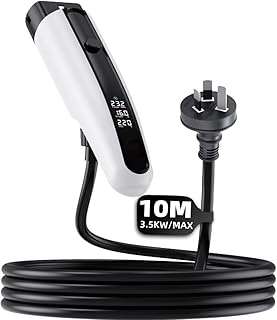As Europe aims to transition to electric cars to align with its climate goals, the accessibility and affordability of electric vehicles have become crucial. The discussion revolves around the possibility of a €25k battery electric car (BEV) being feasible by 2025, without subsidies, to cater to a broader consumer base. Various factors influence car prices, including size, market segment, component costs, and profit margins.
An analysis by T&E focuses on the European car market trends, pricing strategies, and automaker approaches to determine the viability of a €25k BEV. Interestingly, despite challenges in the supply chain, carmakers have seen a significant increase in profits per car over the years, driving up the overall pricing of vehicles in Europe.
One noticeable shift in the automotive industry is the rise in SUV sales, which have surged from 9% in 2010 to 47% in 2022, indicating a growing preference for larger vehicles. This trend extends across all brands and powertrains, with SUVs dominating the market, even in non-premium segments. In contrast, smaller affordable car models synonymous with Europe are being phased out, reflecting automakers’ focus on maximizing profits.
Despite the demand for electric vehicles, cost remains a significant barrier to widespread adoption. T&E’s commissioned surveys across European countries suggest that offering a €25k BEV could significantly boost electric car sales. The availability of affordable small BEVs could potentially drive a shift towards electric mobility, with an estimated additional 1 million electric cars sold annually.
While the prospect of a small, entry-level €25k BEV by 2025 seems promising from a technological and market standpoint, challenges persist in ensuring timely and sufficient availability in the European market. The need for a coordinated strategy at European, national, and local levels is emphasized to encourage European automakers to prioritize smaller, more affordable electric models over resource-intensive SUVs.
As the electric vehicle landscape evolves rapidly, with key players reducing prices and exploring innovative technologies, the feasibility of affordable compact electric transport is increasingly likely. However, to effectively compete with established markets like China, European automakers must accelerate the production and adoption of smaller electric vehicles through strategic regulatory measures.
📰 Related Articles
- Leapmotor Debuts Affordable Electric Cars at Automobile Barcelona
- Hyundai Inster 2025: Compact, Stylish, and Affordable Electric SUV
- Affordable Electric Scooters for Urban Commuters: 2025 Trends and Options
- 2025 Kia EV3: Affordable Electric SUV with Impressive Range
- iBuypower RTX 5070 Prebuilt: Affordable Gaming Power for 2025

![EV Charger Type 2 [3.5 kW|6M|10A to 15A Adapter] dé Portable EV Chargers with Australian 15A Charger EV, Adjustable Curren...](https://m.media-amazon.com/images/I/71Zi0eoR4UL._AC_UL320_.jpg)




